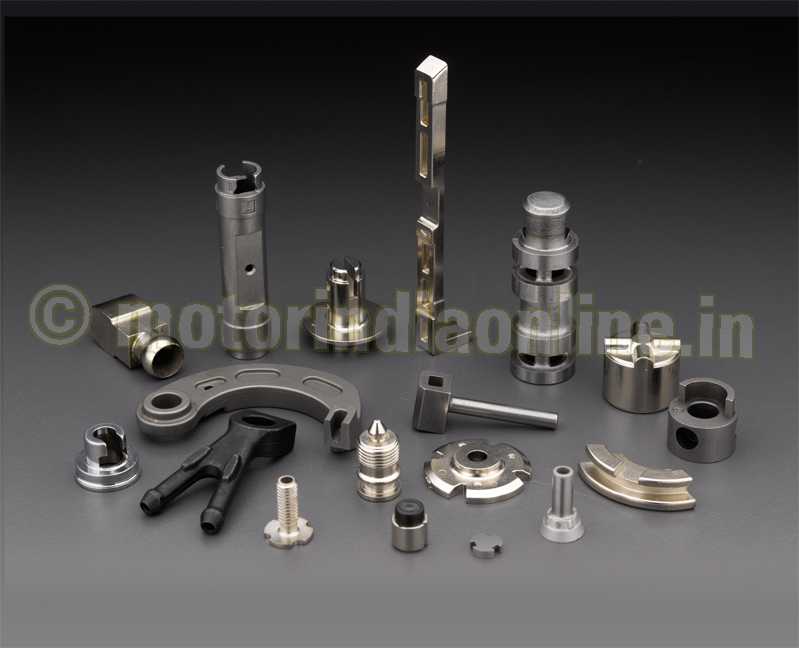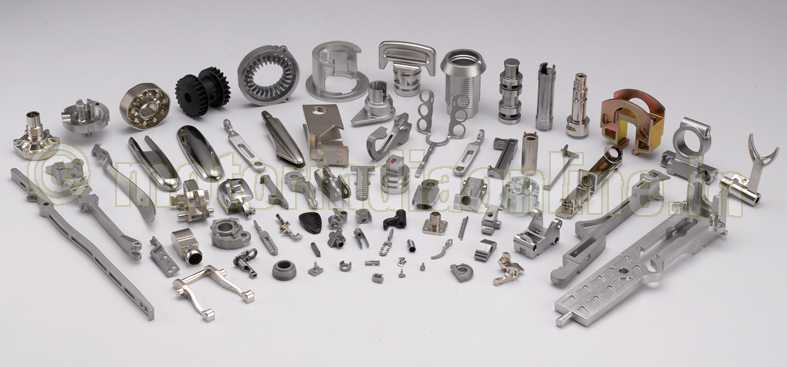
The automotive market which has been growing worldwide always boasts of technological innovation, particularly since last 20 years. One such emerging manufacturing technology known for the innovative principle involved in it is Metal Injection Molding (MIM).
MIM has certain inherent capabilities to become a most suitable manufacturing process for small, complex metal parts for automotive applications, one of them being “manufacturability for complex product design”. MIM can produce any shape similar to that of thermoplastics by injection molding with certain limitations to the general rule in both cases. It offers various design advantages like hexagonal, square, splined, blind and flat bottom holes even at angles to each other, knurled features, external / internal threads logo / part number / raised letters / impressions or cavity ID are feasible. The various parts in the assembly can be integrated into single piece design, reducing the manufacturing cost and the lead time.
“Material variety” has its important role in the MIM process as most of the metals and alloys available in MIM grade powder form can be processed. However, the metals and alloys that melt at temperature over 1000 Deg C (1832 Deg F) are more successfully processed by MIM.
For complex chemistry, there are three possible starting forms – mixed elemental powders, fully compounded powders, or a hybrid of partially compounded and elemental powder. If the material is available or can be custom-fabricated as a small powder, then MIM is a viable production route and selection of the appropriate material for a particular application often decides the success of a MIM project, which is based on performance, cost and input from a MIM part supplier or expert.
MIM has an advantage of producing “prototype” tools (sample tools) which can be made initially for low volume development. A few components can be produced for functional testing before it gets a go-ahead for high volume production for automotive manufacturers. MIM can very well blend for “high volume production” too. In fact, the need of manufacturing technology for small, precise, complex-shaped parts in large volumes with short lead times and at competitive price has triggered the MIM technology. The multiple cavity tooling with automation is often chosen for high volume production.
As far as processing is concerned, the MIM technology can be automated to plastic injection molding and powder metallurgy manufacturing process, including online inspection. MIM parts are amenable for all the “secondary operations” similar to the ones on wrought or cast materials like heat treatment, surface treatment, machining & joining and hipping operations. Hence they can be finished to any requirements as per the product design.

Indo-MIM, headquartered in Bangalore, is a global supplier of precision-engineered products using MIM as the core manufacturing technology. The MIM process here combines the design flexibility of plastic injection molding with the strength and integrity of wrought metals to offer cost-effective solutions for highly complex part geometrics. Besides being widely used in medical, consumer goods and Defence sectors, MIM has gained recognition in the global automotive sector too. The automotive industry demands parts with high performance and even higher reliability at a competitive cost, and MIM has been meeting this challenge efficiently.
Thanks to its capabilities, the technology from Indo-MIM has been accepted by the industry as a reliable and cost-effective one, being used in many diverse and demanding applications such as fuel systems (injectors, pumps, and armatures), power trains (rocker arms and hydraulic spools), and gearboxes and turbochargers (vanes, rollers, spacers, bushings and rings). As process capabilities continue to evolve, MIM has been providing designers with an ability to meet the demanding performances and cost goals. Hence it is considered as one of the most suitable processes for manufacturing small, complex metal parts for automotive applications.